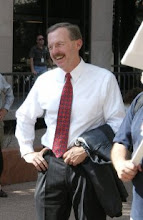
WORLD FOCUS: Second oldest profession
FRANK SHATZ
POSTED: August 26, 2010
While I was doing research for my recent column in the Lake Placid News and The Virginia Gazette about the Russian spy ring, whose members lived in “deep cover” across the United States, and were instructed to “embed themselves, in American society, and infiltrate U. S. policy making circles,” the name of Col. Alfred Redl repeatedly came up.
Redl was once one of the most powerful and ruthless counter-intelligence chiefs of the Austro-Hungarian Empire. At the same time, he was himself Czarist Russia’s leading spy. Before World War I, he sold to the Russians, Plan III, the entire Austrian invasion plan for Serbia, its mobilization plans and the description of Austria’s fortifications. He also sold out to the Russians many Austrian agents, some of them within the Russian Imperial Staff.
He conducted his spy activities on behalf of Russia from 1903 to 1913. Even after having been rotated out from the post of counter-intelligence chief, and made Chief of Staff of the Austro-Hungarian Imperial Army stationed in the Czech lands, he continued to deliver secret messages to his paymasters in Russia.
On May 25, 1913, Col. Redl, was found shot to death in a Vienna hotel room, an apparent suicide. An elaborate effort was made by the government of Emperor Franz-Joseph to cover up the reason for the suicide. The cover-up may have succeeded, if not for the perseverance of a young reporter.
I learned about the details while interviewing Egon Ervin Kisch, by than a famous globe-trotting journalist whose reports have been published in newspapers across Europe.
Kisch recalled that while working as a young reporter for the Prager Loyd, the leading German language newspaper in Prague, he read the short official notice, announcing the death of Col. Redl, but paid scant attention to it.
All this changed, however, when he learned why the star player of his football team, who was a locksmiths by trade, didn’t show up at the Sunday afternoon game He justified his absence by explaining that he was summoned to the headquarters of the military counter-intelligence service, and pressed into service to open the locks in Col. Redl’s luxurious Prague apartment. “The officers conducting the search were astonished at what they found and talked about high treason,” the locksmith revealed. His curiosity spiked, Kisch sprung into action.
Not unlike Carl Bernstein and Bob Woodward during the Watergate scandal, Kisch also used confidential sources to gain information, and the “Redl Affair” slowly unraveled.
It was revealed that Czarist Russian agents caught Redl, a homosexual, in a compromising position. They blackmailed him and provided generous payments to finance his lavish lifestyle.
After he left the counter-intelligence service, Redl was not aware that a new system was put into place that checked suspicious mail. He received payments from the Russians through poste restante mail sent to the main post office, in Vienna.
When on May 25, 1913, Redl appeared at the post office to pick up the mail posted to a cover name, he was observed by two police detectives assigned to monitor the mail. Redl left in a taxi, and was shadowed. The driver of the taxi noticed that Redl opened the letter, stuffed with banknotes, with a pen-knife. The detectives found the knife, left inadvertently, on the upholstered seat.
In the lobby of hotel “Klomser,” one of the detectives approached Redl, holding the silver pen-knife, and asked whether he had lost it. Redl, readily admitted ownership. Then his face turned pale. As an experienced former intelligence chief, he realized immediately that he had made a fatal mistake.
According to Kisch, Redl’s interrogation was conducted in accordance with the rules of “chivalry” customary among officers of the Austro-Hungarian Imperial Army. He made a detailed confession, and was spared a humiliating public trial. He was escorted back to his hotel, was given a pistol and was allowed to commit suicide.
It is not clear what harm the members of the Russian spy ring would have caused if they would have not been unmasked. Redl, certainly did a lot of harm. Historians tend to consider him one of history’s greatest traitors. His actions were responsible for the death of half a million of his countrymen.
Frank Shatz lives in Williamsburg, Va. and Lake Placid. His column was reprinted with permission from The Virginia Gazette.Sphere: Related Content




No comments:
Post a Comment